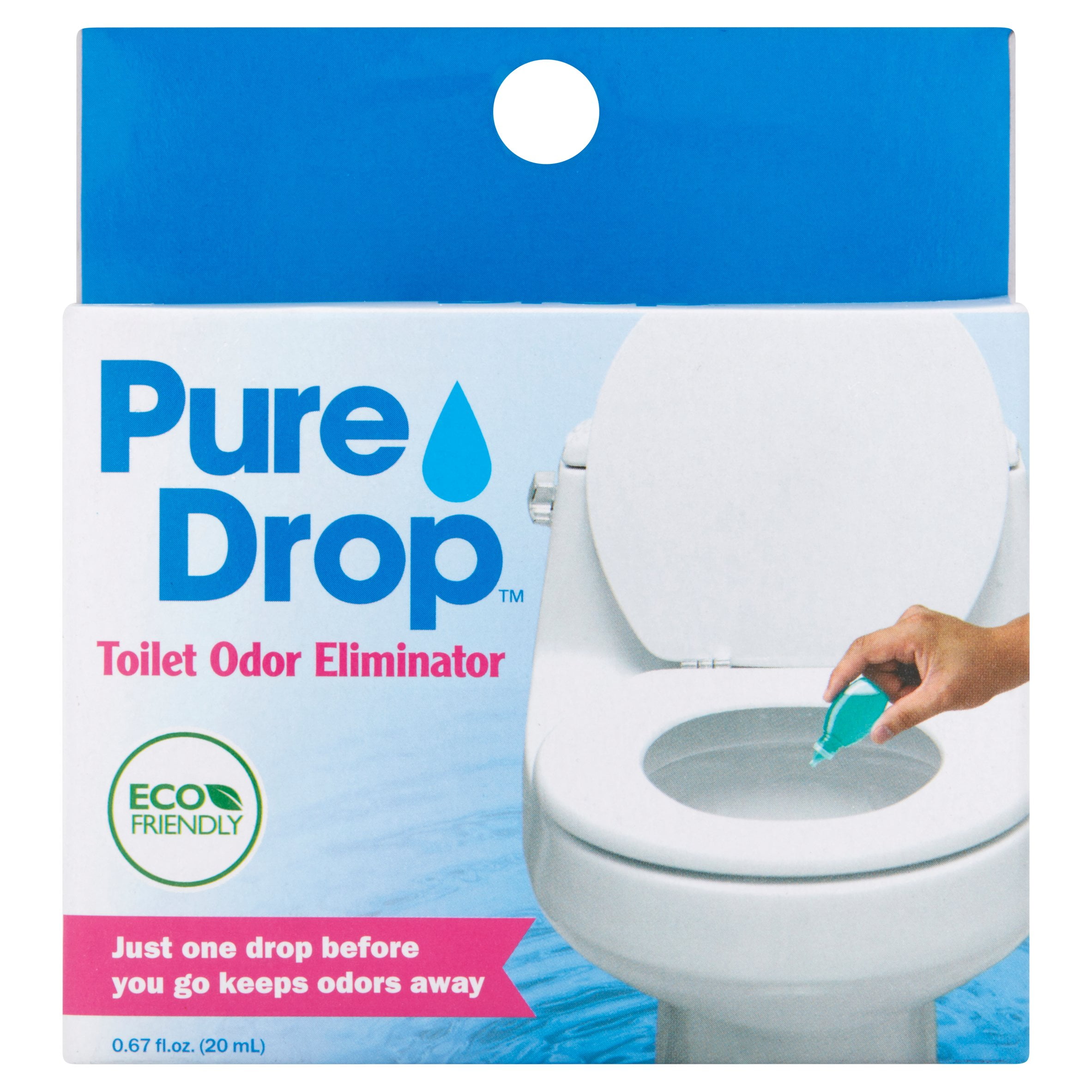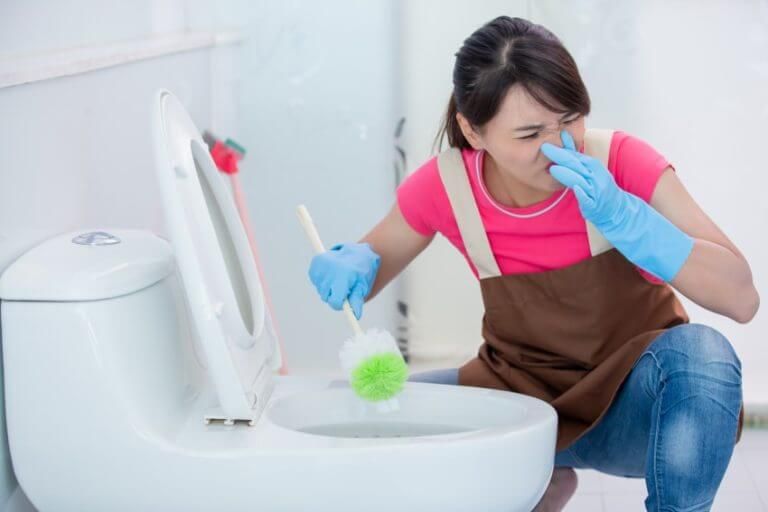Understanding the Source of Bathroom Odors

A fragrant bathroom is a haven of relaxation, but when unpleasant smells linger, it can turn your sanctuary into a source of frustration. Understanding the root causes of bathroom odors is crucial for effectively eliminating them.
Common Causes of Bathroom Odors
The most common culprits behind bathroom odors are often related to poor ventilation, moisture buildup, mold growth, and improper waste disposal. These factors create an environment where bacteria and fungi thrive, producing unpleasant smells.
Ventilation
- Insufficient ventilation allows moisture and odors to accumulate, creating a breeding ground for bacteria and mold.
- Exhaust fans are essential for removing moisture and odors, especially after showering or bathing.
- Ensure your bathroom fan is powerful enough to effectively remove air and that it runs for an adequate amount of time after each use.
Moisture Buildup
- Excess moisture can lead to mold growth, which produces a musty odor.
- Regularly wiping down surfaces, especially after showering, helps prevent moisture buildup.
- Consider using a dehumidifier in humid climates or bathrooms with limited ventilation.
Mold Growth
- Mold thrives in damp, dark environments and produces a distinct musty odor.
- Areas prone to mold growth include shower curtains, grout, and walls.
- Regularly cleaning and disinfecting these areas with mold-killing solutions can prevent mold growth and eliminate odors.
Improper Waste Disposal
- Waste disposal systems, including drains, pipes, and toilets, can harbor bacteria and produce unpleasant odors.
- Regularly cleaning drains and toilets with specialized cleaners can prevent clogs and eliminate odors.
- Ensure proper disposal of waste products, such as hair and debris, to avoid clogging and odor issues.
Specific Bathroom Products and Materials
Certain bathroom products and materials can contribute to odor issues.
Toilet Bowl Cleaners
- Some toilet bowl cleaners contain strong chemicals that can linger and create unpleasant odors.
- Consider using natural or eco-friendly cleaners that are less harsh and have a more pleasant scent.
Shower Curtains and Liners, Best way to get rid of bathroom odors
- Shower curtains and liners can trap moisture and mold, producing a musty odor.
- Regularly cleaning and replacing these items helps prevent odor issues.
Bathroom Rugs and Mats
- Bathroom rugs and mats can absorb moisture and odors, especially if not regularly cleaned.
- Wash rugs and mats frequently and consider using moisture-wicking materials.
Types of Bathroom Odors
Understanding the source of different bathroom odors can help you target the problem more effectively.
Sewage Odor
- Sewage odors typically originate from the sewer system or plumbing.
- A sewage odor indicates a potential leak or blockage in the plumbing system.
- Contact a plumber to investigate and repair the issue.
Mildew Odor
- Mildew odors are caused by mold growth, often in damp areas like showers and tubs.
- Mildew odors are typically musty and can be accompanied by visible mold growth.
- Clean and disinfect affected areas with mold-killing solutions to eliminate the odor.
Urine Odor
- Urine odors are often caused by spills or incomplete flushing.
- Clean spills promptly and ensure proper toilet flushing.
- Use specialized urine-eliminating cleaners to neutralize the odor.
Effective Odor Elimination Strategies: Best Way To Get Rid Of Bathroom Odors

Now that you understand the root of the problem, let’s dive into practical solutions to banish those unwanted bathroom smells. This section will explore a variety of strategies, ranging from simple ventilation techniques to specialized odor-neutralizing products, all designed to leave your bathroom smelling fresh and clean.
Ventilation and Air Freshener Techniques
Proper ventilation plays a crucial role in eliminating bathroom odors. It helps to remove moisture and stale air, which can harbor odor-causing bacteria. Here are some effective techniques:
- Exhaust Fans: Ensure your bathroom has a functional exhaust fan and use it every time you shower or bathe. Running the fan for 15-20 minutes after use helps to remove moisture and odors.
- Open Windows: When possible, open windows to allow fresh air to circulate. This is particularly effective in well-ventilated bathrooms with natural airflow.
- Air Fresheners: Air fresheners can mask odors, but they don’t eliminate the source.
Type Effectiveness Scent Options Drawbacks Sprays Short-term masking Wide variety Can be overpowering, may not address underlying odors Plugins Continuous scent release Limited options Can be strong, some people are sensitive to the chemicals Essential Oils Natural and pleasant scents Wide range of scents May not be as effective as chemical air fresheners
Cleaning and Disinfecting Practices
Regular cleaning and disinfecting are essential for removing odors and preventing their recurrence. Here’s a step-by-step guide:
- Toilet Bowl: Use a toilet bowl cleaner to remove stains and eliminate odor-causing bacteria. Pay special attention to the rim and under the lip where grime often accumulates.
- Shower Drain: Clean the shower drain regularly to remove hair and debris that can trap moisture and create unpleasant odors. Pour boiling water down the drain followed by a drain cleaner to eliminate clogs and odor.
- Garbage Disposal: Run cold water while grinding citrus peels or ice cubes in the garbage disposal to freshen the smell. Avoid putting grease or bones down the disposal as they can contribute to odor.
- Floor and Walls: Mop the floor and wipe down walls with a disinfectant cleaner to remove dirt, grime, and bacteria. Pay attention to corners and grout lines where mold and mildew can grow.
- Sink and Countertop: Clean the sink and countertop with a disinfectant cleaner to remove food particles and spills that can attract bacteria and create odors.
- Trash Can: Empty and clean the trash can regularly to prevent odors from accumulating. Use a trash bag with an odor-absorbing lining or spray the can with a disinfectant spray.
Odor Neutralizing Products
Odor neutralizers work by breaking down odor molecules rather than simply masking them. These products are particularly effective for strong or persistent odors:
- Enzyme-Based Cleaners: These cleaners contain enzymes that break down odor-causing bacteria and organic matter. They are effective for removing odors from urine, feces, and vomit.
- Activated Charcoal: Activated charcoal absorbs odor molecules and is often used in air purifiers and odor-absorbing filters. Place an open container of activated charcoal in the bathroom to absorb odors.
- Ozone Generators: Ozone generators release ozone gas, which is a powerful oxidizer that breaks down odor molecules. They can be effective for eliminating strong odors, but it’s important to use them in a well-ventilated area.
Natural Remedies
Natural remedies offer a cost-effective and environmentally friendly approach to odor control. Here are some common options:
- Baking Soda: Baking soda is a natural deodorizer that absorbs odors. Sprinkle baking soda on carpets and rugs, let it sit for a few hours, then vacuum it up. You can also add baking soda to your toilet bowl cleaner for extra odor control.
- Vinegar: Vinegar is a natural disinfectant and odor neutralizer. Pour a cup of vinegar down the drain to eliminate odors. You can also use vinegar to clean the toilet bowl, sink, and countertop.
- Charcoal: Charcoal is a natural absorbent that can be used to remove odors from the air. Place a bowl of charcoal in the bathroom to absorb odors.
Preventing Future Odor Problems

Best way to get rid of bathroom odors – Once you’ve successfully tackled those unpleasant bathroom odors, it’s time to implement preventative measures to keep them at bay for good. Think of it as a proactive approach to maintaining a fresh and inviting bathroom environment. By addressing the root causes of odor, you can create a bathroom that’s not only clean but also odor-free.
Maintaining Proper Ventilation
Good ventilation is crucial for preventing bathroom odors. Imagine your bathroom as a living space, and fresh air is its lifeblood. Proper airflow helps to remove moisture, stale air, and lingering odors, leaving your bathroom feeling clean and airy.
- Exhaust fans are your bathroom’s best friend. They efficiently remove moisture and odors from the air, especially after showers or baths. Make sure your exhaust fan is working properly and is turned on during and after these activities.
- Open windows whenever possible, especially during mild weather. This allows fresh air to circulate, preventing odors from becoming trapped.
- Consider installing a vent fan if your bathroom lacks one. This is a simple and effective way to improve ventilation and prevent odor buildup.
Regular Cleaning and Disinfecting
A regular cleaning routine is essential for preventing bathroom odors. Think of it as a preemptive strike against those lingering smells. Regular cleaning helps to eliminate bacteria and other microorganisms that contribute to odor.
- Clean your toilet bowl regularly. The toilet bowl is a breeding ground for bacteria, so it’s important to clean it thoroughly, especially under the rim.
- Wipe down surfaces, including the sink, countertop, and shower walls. This removes dirt, grime, and soap scum that can trap odors.
- Clean the shower head to remove mineral buildup that can create a musty smell. You can soak the shower head in vinegar for a few hours to loosen the buildup.
- Empty the trash can regularly. This prevents odors from accumulating and spreading.
Addressing Moisture Issues
Moisture is a major contributor to bathroom odors. It creates a breeding ground for bacteria and mold, both of which release unpleasant smells. Here are some ways to manage moisture in your bathroom.
- Use an exhaust fan during and after showers and baths to remove excess moisture. Ensure the fan is vented to the outside.
- Consider using a dehumidifier if your bathroom is prone to high humidity. This helps to remove moisture from the air, preventing odor buildup.
- Fix any leaks promptly. Even small leaks can contribute to moisture buildup, leading to odor problems.
- Keep the bathroom door open after showering or bathing to allow air to circulate and dry the room.
Choosing Odor-Resistant Materials
Selecting odor-resistant materials for your bathroom can help minimize odor absorption. Think of it as choosing materials that are naturally odor-repellent, making your bathroom less susceptible to odors.
- Choose ceramic tiles for your bathroom walls and floor. Ceramic tiles are non-porous and resistant to moisture and odor absorption.
- Consider using grout sealant on your tile grout. This helps to prevent moisture and odor absorption into the grout.
- Choose solid surface countertops, such as granite or quartz, as they are non-porous and resistant to stains and odors.
- Select odor-resistant shower curtains made of materials like vinyl or polyester. These materials are less likely to absorb odors and are easy to clean.
While a good air freshener can help mask bathroom odors, the real key to a fresh-smelling space lies in eliminating the source. Consider installing best pvc doors for bathrooms that create a better seal, preventing moisture and odors from escaping into the rest of your home.
This simple upgrade can make a big difference in maintaining a clean and fresh atmosphere in your bathroom.
A well-ventilated bathroom is key to keeping those unpleasant odors at bay, but what if your bathroom lacks a vent? Fear not, for a best dehumidifier for bathroom without vent can be your savior. These devices not only combat excess moisture, a breeding ground for mold and mildew, but also help prevent the musty odors that often accompany a humid environment.